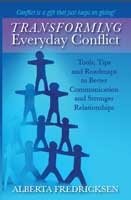How many times have you squashed a lady bug?
Seriously, can you even remember one time? Or rather, does this question bring to mind the recollection of a pleasant moment of internal delight and the satisfaction of gently capturing a lady bug between your cupped hands and removing her to an appropriate place in your garden or elsewhere?
Yes, it’s true. Generally, when many of us see that cute little red bug speckled with black dots and gifted with tiny wings just large enough to possibly play a game of getaway with us, we don’t even think of harming her.
Rather, we exclaim, “Oh! There’s a lady bug!” Now, most of us don’t greet bugs or insects with a happy expression or greeting. We’re more likely to step on the intruder or swat it and quickly remove it from our sight to the trash bucket.
However, when we see a lady bug, most of us instantly go into a protective mode. We will look for a a way to gently transport the lady bug from any potential harm and carefully place her outside in some nice, green bushes where we imagine she will survive and thrive. What’s going on with this phenomenon?
We enter into some kind of relationship with the lady buy—and that means we are moved to protect her—and the relationship. Our lives are all about relationships. We are all connected is a view held by many experts in quantum physics, psychology, evolutionary biology, and theology. And we have heard the statements that what hurts one, hurts all; what benefits one, benefits all. And in fact, even though we may also experience personal inner conflicts, most of our conflicts are with others.
“What’s going on with this phenomenon? We enter into some kind of relationship with the lady bug—and that means we are moved to protect her—and the relationship. Our lives are all about relationships….One of the primary principles to understand about conflicts is that conflict can escalate when the issue becomes more important than the relationship.”
Two Keys
One of the primary principles to understand about conflict is that conflict usually escalates when the issue becomes more important than the relationship. Needing to be right or fearing a sense of loss are strong motivators that we must recognize in order to move beyond them to a place of choosing to protect or preserve the relationship. We want to inspire trust in others that we will strive to protect the relationship. The alternative is to believe that the other person doesn’t matter and that’s the equivalent of squashing the lady bug.
Trust is the glue of life. It’s the most essential ingredient in effective communication.
It’s the foundational principle that holds all relationships. —Stephen Covey
Effective communication leads to stronger relationships. Making assumptions and judgments about others prevents understanding. Asking others clarifying questions allows you to understand their point of view. You always learn more while listening than speaking.
Assumptions are the termites of relationships. —Henry Winkler
Preserving relationships is another layer of enlightened self-interest. And it provides a cradle for more HeartPeace, just like settling the lady buy into a new, safer environment and wishing her well.



